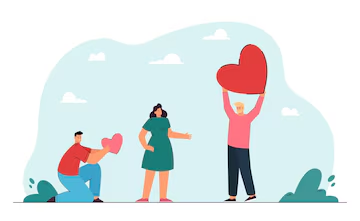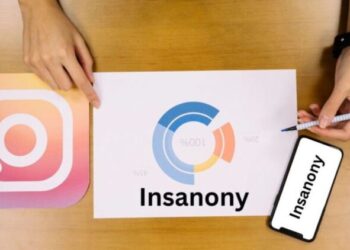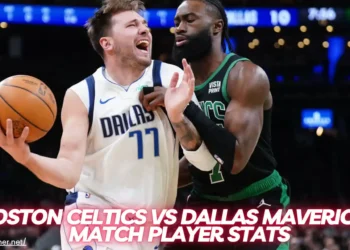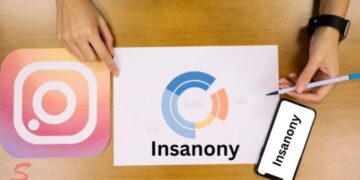Understanding the Love Triangle Phenomenon
Why Love Always Fail in Triangle? Love triangles are an age-old emotional dilemma where three individuals become emotionally entangled in a web of affection, desire, and confusion. Typically, one person is emotionally or romantically involved with two others, knowingly or unknowingly. This setup often leads to internal conflict, jealousy, and emotional burnout.
In most cases, the foundation of a love triangle lacks balance. One party is usually left out or sacrificed in the emotional equation. While such stories make gripping plots in novels or films, real-life experiences are far from glamorous. The hurt and confusion arising from being part of such a triangle often leave lasting emotional scars.
Moreover, love triangles rarely result in lasting, healthy relationships. The constant comparison, doubt, and betrayal involved make it difficult to foster genuine trust or emotional security. This is precisely why love in a triangle often leads to emotional failure.
The Psychological Dynamics Behind Love Triangles
Behind every love triangle lies a complex psychological struggle. At its core, this situation often reflects a person’s need for validation, control, or fear of emotional vulnerability. Psychologists suggest that individuals who engage in triangular relationships may suffer from attachment insecurity—they fear both intimacy and abandonment, and this duality leads them to seek comfort in more than one person at a time.
Furthermore, the presence of a third person introduces competition and comparison. This may trigger low self-esteem, anxiety, and obsessive behavior in the individuals involved. The person caught between two lovers experiences guilt and mental conflict, while the other two often battle feelings of inferiority or betrayal. Learn More
Another psychological dimension is the illusion of emotional safety. One partner may offer stability, while the other brings excitement. This duality may seem ideal in theory but, in reality, causes mental exhaustion. Constantly juggling between loyalty and desire results in emotional fragmentation and ultimately damages all connections involved.
Jealousy and Insecurity: The Invisible Destroyers in Triangles
One of the most destructive forces in triangular love stories is jealousy. When more than two people are romantically involved, it becomes almost impossible to avoid comparison. Who gets more time, attention, or affection? These questions give birth to emotional tension and lead to internal rivalry, even if unspoken.
Insecurity grows alongside jealousy. A person in a triangle often questions their worth: Am I enough? Why do they need someone else? This emotional unease chips away at self-esteem and can leave long-lasting scars. While jealousy may seem like proof of love, in reality, it often signals emotional instability and lack of trust.
Moreover, the constant emotional push and pull in such arrangements create a toxic cycle. As one person gets closer, the other may drift apart—or act out to regain control. This seesaw of emotions rarely allows the space for genuine love to flourish and usually ends with someone feeling emotionally bankrupt.
Building Healthy Boundaries: Prevention Over Heartbreak
To avoid falling into emotionally complex situations like love triangles, it’s vital to build and maintain healthy boundaries. Emotional clarity is the foundation of any strong relationship. Clear communication about needs, expectations, and limits helps prevent misunderstandings that can spiral into emotional entanglements.
Boundaries also serve as a filter for emotional manipulation. In some triangles, one person may string along two others for personal gain—be it attention, validation, or convenience. Setting personal limits helps protect one’s peace of mind and prevents being used or emotionally drained.
Furthermore, being attentive to red flags early on—like evasive answers, inconsistency, or divided loyalties—can help individuals exit before emotional investment becomes irreversible. Prevention, through emotional awareness and boundary-setting, is far easier and healthier than repairing a broken heart later.
Choosing Emotional Monogamy: The Path Toward Peace
In a world where complicated emotions are normalized, emotional monogamy is often overlooked. But choosing to love one person deeply and honestly can bring unmatched emotional peace. This doesn’t just mean physical loyalty; it’s about committing fully to someone with emotional clarity and maturity.
Monogamous relationships foster emotional safety, where both partners feel seen, heard, and valued. There’s no competition, no second-guessing—just two people trying to grow together with respect and honesty. This kind of love might not be as dramatic as a triangle, but it is far more sustainable and fulfilling.
Lastly, true love thrives on exclusivity and trust. When two people choose each other wholeheartedly, they invest in emotional growth, spiritual harmony, and lasting connection. For anyone caught in or recovering from a love triangle, embracing emotional monogamy could be the first step toward real healing and a peaceful heart.
Emotional Imbalance and Unmet Expectations
In any relationship, expectations are natural. However, in a love triangle, expectations multiply and clash. Each individual carries their own emotional baggage and desires. When three hearts try to beat in sync, the rhythm usually collapses. One person may expect exclusivity, while another craves attention without commitment. The result? Emotional imbalance.
One of the most damaging aspects of triangular love is emotional neglect. At least one party—often the one unknowingly involved—ends up feeling ignored, unimportant, or used. This emotional oversight creates deep psychological wounds. Love becomes a battlefield rather than a sanctuary.
In many instances, love triangles break apart because of unfulfilled promises. People enter these arrangements thinking they can manage emotions rationally, but emotions aren’t logical. The emotional needs of all parties can’t be equally fulfilled, making long-term happiness nearly impossible.
Cultural & Moral Perspectives on Triangular Relationships
From a moral and spiritual perspective—especially within Islamic values—triangular relationships are seen as unstable and ethically wrong. Islam emphasizes loyalty, honesty, and emotional purity in relationships. It strictly prohibits actions that may lead to deceit, betrayal, or harm to others’ dignity and emotional well-being.
Culturally, many societies frown upon love triangles because they disrupt the fabric of trust and honor within families and communities. These relationships are often kept secret, adding layers of guilt, shame, and hidden trauma to those involved.
Furthermore, in most moral codes, sincerity and emotional clarity are essential in forming any romantic bond. When two people love each other honestly, they nurture a healthy, stable environment. But the moment a third person enters with romantic interest, that sincerity is questioned, and the moral foundation begins to crumble.
The Healing Process After a Triangular Heartbreak
Recovering from a love triangle is emotionally taxing but necessary for personal growth. The first step is acceptance—acknowledging what went wrong without sugar-coating the emotional damage. Many people try to mask the pain by jumping into another relationship, which often leads to repeated patterns of heartbreak.
Therapists advise practicing emotional detachment from all involved parties before any true healing can begin. This doesn’t mean forgetting, but rather choosing to no longer feed emotional energy into relationships that have proven harmful. Journaling, prayer, or talking to a trusted friend or counselor can help in this phase.
Eventually, forgiveness plays a vital role. Whether it’s forgiving oneself for making poor emotional choices, or forgiving others for their actions, this step frees the heart from bitterness. The ultimate goal is not to dwell in the ruins of a failed triangle but to build stronger, wiser emotional foundations for the future.
Fazit (Conclusion)
The phrase “Why Love Always Fail in Triangle” is more than just a romantic cliché—it’s an emotional reality grounded in human psychology, moral principles, and emotional integrity. Love triangles may seem thrilling at first glance, but they often unravel into emotional confusion, heartbreak, and mistrust. Whether due to psychological conflict, unmet expectations, or spiritual dissonance, triangular love almost always fails to thrive long-term.
By understanding the emotional triggers and healing mechanisms, individuals can protect themselves from the repeated trap of complex, imbalanced love. The key is to be emotionally honest, spiritually grounded, and morally conscious. Only then can love evolve into something healthy, mutual, and fulfilling.
FAQs
1. Why does love fail in triangles more often than regular relationships?
Love in triangles usually involves conflicting emotions, jealousy, and divided attention, making trust and commitment difficult to maintain.
2. Can a love triangle ever lead to a healthy relationship?
It’s rare. Most such relationships are marked by imbalance and emotional pain, and rarely result in lasting happiness.
3. What’s the best way to heal from a triangular heartbreak?
Start with self-reflection, cut emotional ties, and seek guidance—either spiritual or therapeutic—for emotional clarity and peace.
4. Is being part of a love triangle morally wrong?
From most cultural and religious perspectives, yes. It often involves deceit, which goes against principles of honesty and respect in relationships.















